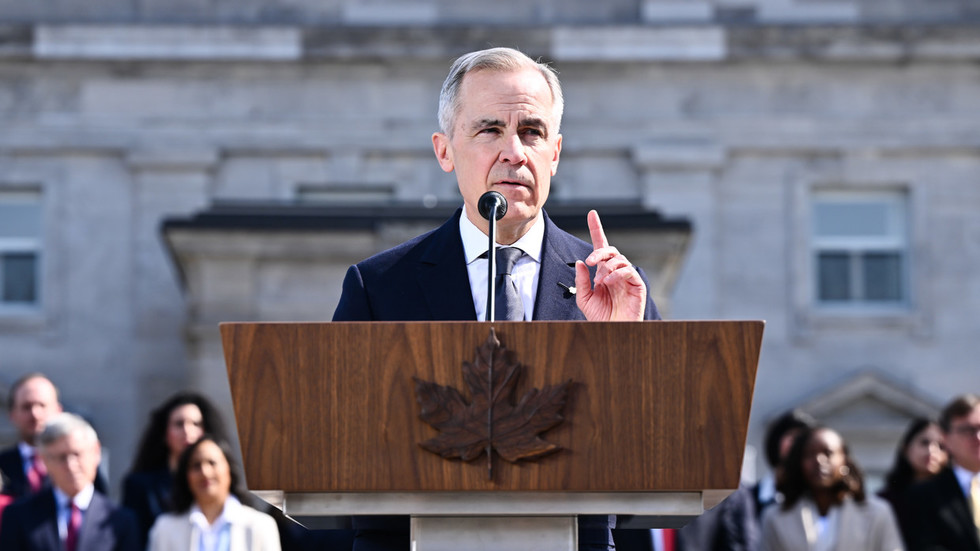Even before his re-election as US president, Donald Trump would occassionally float the idea of remaining in office beyond the two terms permitted by the US Constitution. There are some indications that he is serious. Just recently, he told journalists at the White House that "people" were asking him to run again. When asked whether he wanted to, he said: "I don't know, I never looked into it. They do say there is a way you can do it."
And in a phone call with US broadcaster NBC News, he did not rule out the possibility of seeking a third term. "I like working," he said, "I'm not joking."
US Constitution says two terms only
There is just one snag: the US Constitution. There, the 22nd Amendment clearly states: "No person shall be elected to the office of the President more than twice."
This tradition goes back to George Washington, one of the Founding Fathers of the US and the country's first president. He retired voluntarily after serving two terms from 1789 to 1797.
For almost 150 years, all of his successors adhered to this unspoken rule. The only president so far to have served longer than two terms is Franklin D. Roosevelt, who ran for a third and fourth term during World War Two.
He died in 1945, just a few months into his fourth presidency. But even before, Congress had concluded that Roosevelt's long presidency should remain a one-off exception because of the extraordinary circumstances. In 1947, it approved the 22nd Amendment limiting the number of times a person can be elected president to two terms and submitted it to the state legislatures for ratification. By 1951, the requisite states had ratified the amendment.
 The US Constitution prevents presidents from running for a third term Image: bildagentur-online/picture alliance
The US Constitution prevents presidents from running for a third term Image: bildagentur-online/picture allianceAnother constitutional amendment?
Trump is now apparently intent on finding out what loopholes might possibly allow him to be president for longer.
One possibility would be another constitutional amendment. Republican representative Andy Ogles proposed one in January, according to which presidents who did not serve consecutive terms would be allowed to run for a third term. Such an amendment would be practically tailor-made for Trump, whose two terms were separated by Joe Biden's four-year presidency.
The bill currently has no realistic chance passing, as it would require a two-thirds majority in both houses of Congress to do so. Republicans only have a narrow majority, and are unlikely to get any support from the Democrats. Similarly, at least three quarters of the US' 50 states would have to approve the bill, but only 27 are governed by Republicans.
 F.D. Roosevelt is the only person to have served more than two terms as US president Image: AGB Photo/IMAGO
F.D. Roosevelt is the only person to have served more than two terms as US president Image: AGB Photo/IMAGOSwapping candidates?
Some legal experts have pointed out that the 22nd Amendment only stipulates that a president may not be "elected" to the office of president more than twice. This has led to speculation that Vice President JD Vance, or another loyal Republican supporter could run in the next presidential election and appoint Trump as their running mate. If they won, the president-elect could then resign and clear the way for Trump to become president again.
But the Constitution also safeguards against such a scenario. The 12th Amendment (1804) states that "no person constitutionally ineligible to the office of President shall be eligible to that of Vice-President of the United States."
'Other methods'
Yet Trump did not rule out such a possibility in his phone call with US broadcaster NBC News. Swapping candidates is one method, he explained, "but there are others." The US president did not elaborate on exactly what these were. At the White House, he explained to the journalists gathered there: "We have four years for now. Time is racing, but it's still almost four years, and we're getting a lot of encouragement right now that we've done a great job in the first hundred days."
If Trump were to run for re-election in 2028, he would be 82 years old.
'New US administration highly unprofessional'
This article was originally published in German.

 By Deutsche Welle (World News) | Created at 2025-04-02 20:01:25 | Updated at 2025-04-04 21:24:28
2 days ago
By Deutsche Welle (World News) | Created at 2025-04-02 20:01:25 | Updated at 2025-04-04 21:24:28
2 days ago








